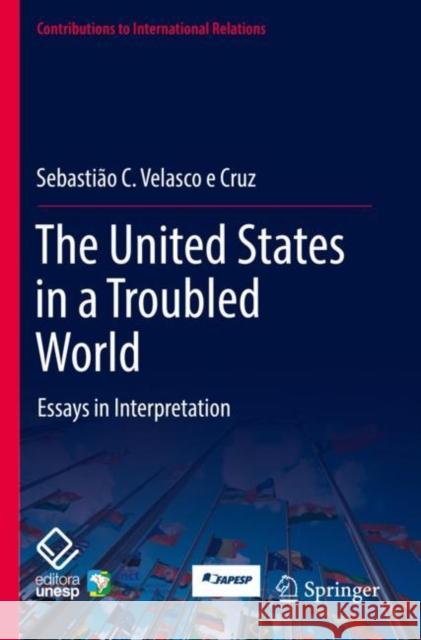The United States in a Troubled World: Essays in Interpretation » książka
The United States in a Troubled World: Essays in Interpretation
ISBN-13: 9783030879167 / Angielski / Miękka / 2022 / 219 str.
The United States in a Troubled World: Essays in Interpretation
ISBN-13: 9783030879167 / Angielski / Miękka / 2022 / 219 str.
(netto: 421,70 VAT: 5%)
Najniższa cena z 30 dni: 424,07
ok. 22 dni roboczych.
Darmowa dostawa!
This book presents an overview of the main changes in the United States' foreign policy in response to the transformations in the international order in the last decades. If, after the end of the Cold War, the USA invested in the universalization of market economy and in the strengthening of its military supremacy, new developments demanded reorientations in the country’s foreign strategy. The controversial military interventions in Afghanistan and Iraq, the 2008 economic crisis, the rise of the BRICs (Brazil, Russia, India and China) and the rise of right-wing populism altered the global political landscape and demanded new responses from the most powerful country in the world.This volume brings together nine essays in which the founding member of the World International Studies Committee, Sebastião C. Velasco e Cruz, analyzes how the United States’ foreign policy responded to the growing challenges posed by this changing international order, discussing topics such as:The evolution of the American geopolitical strategy after the end of the Cold WarHow US foreign policy reacted to challenges to security and dilemmas of the international orderBarack Obama's foreign policy and world politicsDonald Trump and the rise of populism in the USAUS relations with BRICs and Latin AmericaThe United States in a Troubled World: Essays on Interpretationwill be of interest to international relations and political science researchers both within and outside the United States.
This book presents an overview of the main changes in the United States' foreign policy in response to the transformations in the international order in the last decades. If, after the end of the Cold War, the USA invested in the universalization of market economy and in the strengthening of its military supremacy, new developments demanded reorientations in the country’s foreign strategy. The controversial military interventions in Afghanistan and Iraq, the 2008 economic crisis, the rise of the BRICs (Brazil, Russia, India and China) and the rise of right-wing populism altered the global political landscape and demanded new responses from the most powerful country in the world. This volume brings together nine essays in which the founding member of the World International Studies Committee, Sebastião C. Velasco e Cruz, analyzes how the United States’ foreign policy responded to the growing challenges posed by this changing international order, discussing topics such as:
- The evolution of the American geopolitical strategy after the end of the Cold War
- How US foreign policy reacted to challenges to security and dilemmas of the international order
- Barack Obama's foreign policy and world politics
- Donald Trump and the rise of populism in the USA
- US relations with BRICs and Latin America











